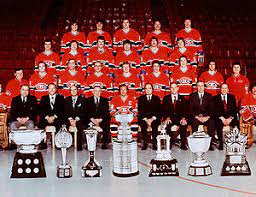Growing up in St.John's, Newfoundland, most of Alex Newhook's hockey buddies cheered for either Montreal or Toronto. So, when the news came that their old pal had been traded from Colorado to Montreal, half his friends celebrated.
"It's pretty split down the middle," he laughs. "I think probably hopefully a few more Habs fans than Leafs now. But yeah, it's fun. It's all part of the game. You know, those rivalries are kind of what makes hockey so great and I think it'll make the rivalry maybe a little more intense now. And I'm all for it. I'm happy that I'm trying to convert some of my buddies over to our side, but it's going to be fun."
Fun is the name of the game in Montreal these days. With a young core growing up together, the focus is on learning, not necessarily winning right now. It's one of the things Newhook likes about the move to Montreal. Another is the fact that management is committed to its young stars and has laid a stable base on which to build a winner.
"It's a team that has a lot of very good young pieces," he says. "You look at the young guys they have locked up right now, it's a pretty exciting time. And knowing that guys are going to be there for awhile, it's going to be fun to try and build their way up in the league over the next few years and and I think the sky's the limit for a team like like us right now."
Notice the transition from "their" to "us" in a single breath. It's not been easy for Newhook to leave Colorado, where he was drafted and won a Stanley Cup.
"I think you always know in the back of your head you might be getting traded and and you know there's always that potential in the business of hockey," he says."Definitely there's some some sadness leaving Colorado, leaving Denver, leaving a team that I've been with for you know my whole career to this point."
When the call came, even though it was in the back of his mind, Newhook was still taken by surprise that it actually happened.
"I was just kind of hanging around my house. I was actually chatting with my dad minutes before I got a call and we were just kind of talking about what my thoughts were if I was to get traded and what that situation would kind of look like," he recalls. "And you know, as I'm talking to him I got a call from the GM of Colorado and found out I was being moved to Montreal. Obviously a lot of emotions but it was cool to hear the news and be there with my dad."
Of course, the first question any traded player asks is "where am I going?" Even though players say they're just pleased somebody wants them, and they're lucky to play in the NHL, no matter where, they still secretly have places they'd rather not go. Luckily, Newhook says his destination was not a disappointment.
"You know some places over others," he explains. "Maybe just based on personnel they have in the team or the team location. So many factors that go into that kind of thing. But you know I think there couldn't really be a better spot for me right now than Montreal. Obviously a great organization, great staff there."
Right after the call from Joe Sakic informing him of the trade, Newhook's phone rang again. This time, Kent Hughes and Martin St.Louis were on the other end, welcoming him to Montreal.
"I think that they're expecting me to have to have a big role in the team as am I," he says, recalling that phone converation. "I want to be able to fill a big role in that team and and be able to help them win. And I think that's kind of the mutual expectation there, although obviously there's not anything set in stone."
Newhook isn't coming to Montreal a complete stranger. He's good friends with Justin Barron and has played with Kaiden Guhle in the past. He also knows former draft-mates Kirby Dach and Cole Caufield. He laughs at the suggestion that perhaps the Canadiens are trying to collect the whole 2019 first round...although his presence makes three.
While looking forward to catching up with old friends and teammates, Newhook is especially excited about playing for St.Louis.
"Yeah, he's got a very very high reputation around the league and I think guys that have played with him, guys that have played for him, everyone speaks very highly of him, regardless of, the relationship that they've had with him," he says. "I've talked to guys who played with him and are coached by him. They all speak very highly of him. They think that he's got a great mind for the game. He's obviously had the players perspective too. His reputation is high and and I think it's for good reason."
St.Louis is one of the big draws for players considering Montreal as a destination, as is the management and development team. The chatter around the league is Montreal is rebuilding with a solid foundation and are on the right path.
"And I think that kind of thing obviously attracts players and young players as well," he says. "And obviously it's one of the best hockey markets in the world. So you know, just to be in that, I think it's going to be a fun environment. You want to be able to win for for those fans and you want to be able to you know show up for them and and have some fun while we're doing it. So I'm looking forward to it."
So are his Habs-fan buddies back in St.John's. The requests for next season's tickets are already rolling in.














